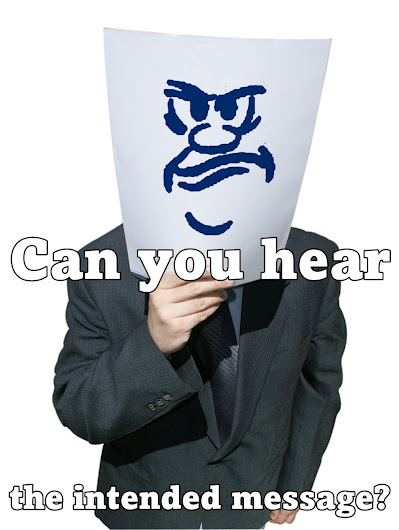D’ya notice how often people don’t say what they mean, because they know what they have to actually say to get what they actually want?
This weekend, I was sitting in the bleachers of a gym…and the woman beside me dropped a bottle of Gatorade underneath the bleacher…and it rolled several feet several feet sideways to the side to rest just underneath the second row.
It was too far away for me to get, and no one else had seen her drop it. The gym was chaotic…it was just in between games at a tournament, and so some people were coming, others were going, others were chatting in small groups, and balls were zinging back and forth. It was loud and fun and a little crazy…and there was no way that this woman’s efforts to attract the attention of someone close to the bottle to reach down and grab it would be successful. She tried…”Excuse me…”, “ummm…I dropped a bottle…” Nothing…nobody heard her.
Then, she changed tactics: “Mouse!!” she called.
And all of a sudden, she had the full attention of multiple people who stopped mid-motion or mid-conversation, stood up, bent over and immediately scoured the floor for said creature.
And as they were looking, she asked one of them to reach for the bottle of Gatorade…which was now easily found by one of several people who were eagerly examining the floor…as it was quickly discovered there was no mouse.
It was hilariously successful.
I complimented her on her strategy, and we giggled at its success–noting that it reminded me of hearing a bit of wisdom that said if ever one was grabbed/assaulted/robbed in a public place, rather than yelling “Help!”, much more help would be received by yelling, “Fire!”
Yelling
“Fire” might not be factually accurate, but would be more strategically effective in having your objective of receiving attention and assistance.
People tend to respond to calls of fire much more immediately than cries for help.
One of my junior tribe members used to come home from the school bus, barge in the back door, fling down his knapsack, and in a loud and complaining way (and I would say melodramatic manner, though he would differ) declare, “I’M STARVING!!”
He would do this on a regular basis.
On bad days, when I was feeling discouraged, run down by the repetitive nature of maintaining a household, overwhelmed by the minutiae of tasks that needed to be accomplished, and feeling like a lousy mom who was frustrated, I would be tempted to respond with something like, “I prepared you breakfast, watched you eat it. I packed you a lunch and then also a snack for recess…don’t you dare accuse me of starving you.” And in my head, I’d go on with things like, “I am not a bad mother. It’s not my fault if you choose not to eat because you’d rather go play. Why do I have to pay for a grumpy kid if he chooses not to eat? I am NOT a bad mother!!”
Yup, I got defensive…not saying it makes sense…c’mon…like you’ve never done something similar?
I was feeling vulnerable, and wanted to fight the content of what he was saying.
On good days, when I had a bit of time to take a break before the after school whirlwind began, and I was feeling more centered, I would hear his, “I’m starving” comment and respond with, “Sounds like I better cut up an apple for you right away!”
Can you guess which comment of mine garnered a better response? Three guesses…but the first two don’t count.
In all of these examples, words are used that most effectively accomplish the goal. Often being factually accurate doesn’t gather the sort of attention or express the level of distress that is desired.
The listener has the choice of addressing the underlying emotional truth, or getting sidelines about the factual evidence…which is an unhelpful rabbit trail.
It helps to recognize that when something said that doesn’t feel accurate, and then to take a step back to empathize where the comment is coming from. The speaker is working to make a point that is important..can you hear the underlying important message, and look past the “facts”?

For example, when a person says, “You always…” or “You never…”, those are often sure points at which the argument gets sidetracked to point out exceptions.
And that misses the point that the person who is saying that line, “You always…” feels in that moment that the only way to express the level of distress the current behavior causes is to overstate it to be heard…with the irony being that when the exception is pointed out, it specifically states that the distress is being minimized and challenged…and the person feels more unheard than ever.
So…yup, we’ve all heard that part of good communication is to avoid words like “always” or “never”…but couldn’t part of good communication be that when those words are used,
- to hear past them to the reason why the speaker felt they were in a position that it was necessary to use them?
- That the listener can ask further about what where the need to say it that strongly comes from?
- That the listener looks past content to meaning?
In our Western world, we get all hung up on the facts…what would happen in your relationship if you would get hung up on the powerful underlying message that the other is trying to communicate to you?






Write a Comment